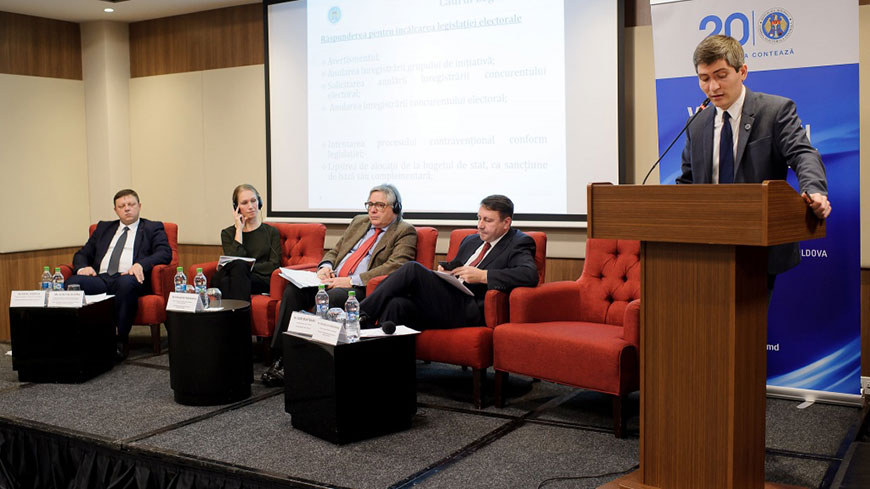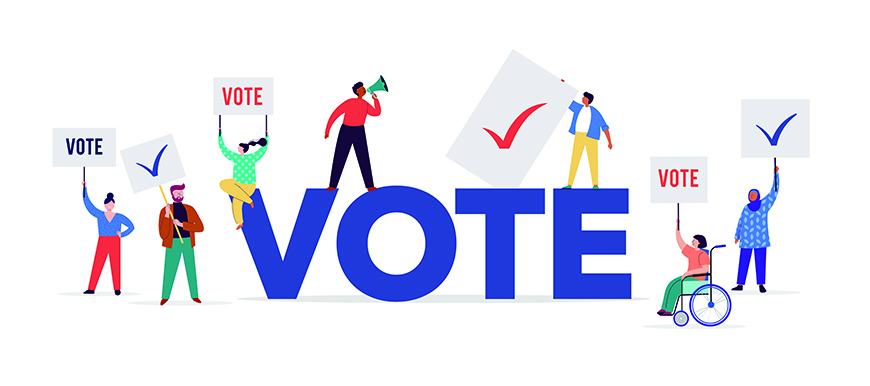In recent years the Republic of Moldova has suffered from several scandals connecting the political sector to financial mishaps. The regulatory system regarding political party and campaign finance was changed in 2015, with further legal amendments being adopted in 2016 and early 2017. The new rules included the provision of public funding for political parties, as well as rules for increased transparency and oversight.
In a country report on political party financing presented at the regional conference “Money in Politics” in June this year in Tbilisi, Georgia, these regulations were analysed and main issues and challenges for the futures identified. The report also highlighted areas that need further debate at country level in the Republic of Moldova.
To this end, a follow-up national conference “Financing of Political Parties in the Republic of Moldova: Lessons Learned in the Eastern Partnership” was jointly organized with International IDEA, Konrad-Adenauer-Stiftung, Friedrich-Ebert Stiftung und CEC Moldova on 15 December 2017 in Chisinau.
In the Republic of Moldova 45 political parties are registered, out of which 15 practically lacked financial activity in 2016. Twenty-three parties reported incomes of about 5 million Euros, out of which 2 million Euros were allocated from the state budget. The main beneficiaries from parties’ expenditures were media holdings and charity organisations affiliated to the parties with the most seats in the Parliament.
The recently adopted OSCE/ODIHR-Venice Commission Joint Opinion on the Legal Framework of the Republic of Moldova Governing the Funding of Political Parties and Electoral Campaigns, which was presented at the conference proposes to ensure leveled playing field in the country: by increasing transparency and financial disclosure; by controlling costs and setting spending and donation limit, and by applying effective, proportionate, dissuasive sanctions and guaranteeing strong and independent enforcement.
Among the systemic challenges voiced out by opposition parties and civil society during the conference were unequal access to funding for different political actors, ability of wealthy interests to influence politics, influx of illicit funding into politics, co-optation of politics by business interests, abuse of state resources, and widespread vote buying.
A further concern highlighted is related to the shift from a proportional to mixed election system (May-June 2017) that will quadruple the election actors and at least triple the burden of election reporting and the need to oversee and check spending bills.
Participants agreed that even if the regulations on party funding were improved in the country, more steps should be taken to ensure transparency in party and election campaign funding. The equal conditions for all parties include also the existence of independent surveillance bodies and the efficient monitoring on the part of public institutions. Political parties should held accountable and penalties that would discourage them from violations should be introduces. Also, participants pointed out the importance of public control through civil society and independent media.
The conference was organised in the framework of the country specific action “Co-operation on electoral matters” of the EU-funded program Partnership for Good Governance.
Articles:
- http://www.jurnal.md/ro/politic/2017/12/15/notiunea-de-stat-capturat-la-adresa-rm-reiterata-de-reprezentantii-consiliului-europei-si-osce/
- http://trm.md/ro/politic/finan-area-partidelor-tema-unei-conferin-te-interna-tionale-organizate-la-chi-sinau/
- http://cec.md/index.php?pag=news&id=1042&rid=21311&l=ro
- https://www.moldpres.md/news/2017/12/15/17009796
- http://ipn.md/ro/politica/88267





